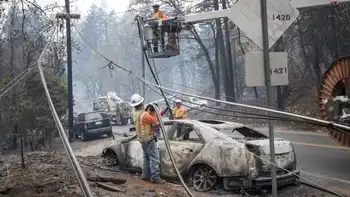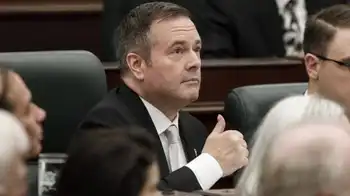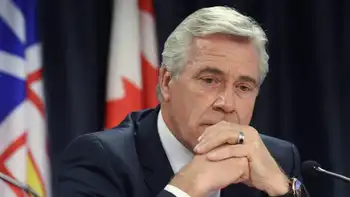U.N. Nuke Chief: Iran Must Come Clean 'Within Months'
VIENNA (- - Iran is not fully cooperating with U.N. inspectors and must come clean about the full extent of its nuclear program within months, the head of the International Atomic Energy Agency said recently.
Mohamed ElBaradei said Iran's cooperation has been ``less than satisfactory'' and warned that the process of clarifying unresolved issues -- particularly over Iran's uranium enrichment activities -- could not be allowed to drag on for ever.
``It is essential for the integrity and credibility of the inspection process that we are able to bring these issues to a close within the next few months, and provide the international community with the assurances it urgently seeks regarding Iran's nuclear activities,'' he told the IAEA's board of governors.
The United States has long accused Iran of trying to build a nuclear weapon under cover of a civilian atomic energy program. Tehran denies this, insisting it is only interested in generating electricity.
Diplomats said the United States would be pushing at the IAEA board meeting in Vienna, expected to last at least several days, for the agency to set Iran a deadline to cooperate fully.
ElBaradei said any deadline would be a matter for the member states to decide, but his comments made clear that Iran had to stop delaying and changing its story.
``We still have a central issue, and that is whether Iran has declared all its (uranium) enrichment activities,'' ElBaradei said, demanding ``accelerated and proactive cooperation.''
A diplomat from one of the 35 nations on the IAEA Board of Governors said he was surprised by the force of the IAEA chief's words: ``The speech by (ElBaradei) was severe. It was serious.''
U.S. ambassador Kenneth Brill, commenting on ElBaradei's remarks, told reporters: ``It was a firm message that Iran has to do much better than it has been doing.''
ElBaradei highlighted concerns over the detection of traces of low-enriched and highly enriched uranium at sites in Iran, and over Tehran's work with advanced P-2 centrifuges.
These are used to enrich, or purify, uranium for use in an atomic reactor or in a nuclear weapon.
Information provided by Tehran on its P-2 program had been ``changing and at times contradictory,'' ElBaradei said.
IRAN SAYS IT GAVE ``FULL COOPERATION''
Iran wants the IAEA to give it credit for the information it has disclosed to date, and has said failure to give it due recognition will affect future cooperation.
Tehran's senior delegate Hossein Mousavian told reporters Iran was providing ``full cooperation,'' supplying all information requested and narrowing down the range of outstanding issues.
In Tehran, newly elected hard-line lawmakers threatened not to ratify a tough IAEA protocol allowing snap inspections, which Iran signed last year and has so far been implementing.
``If Western governments impose extreme demands, the parliament will not sign the protocol,'' parliamentarian Mohammad Reza Tajeddini said in a newspaper article.
Hossein Shariatmadari, editor of the hard-line Kayhan newspaper, said Iran should end snap inspections in response to a toughly worded draft resolution circulated by France, Britain and Germany reprimanding Iran for poor cooperation.
``Now also we should stop implementation of the Additional Protocol to the Non-Proliferation Treaty (NPT) and we should not let them to have access to our nuclear information,'' he wrote.
Delegates at the Vienna meeting will consider the European trio's draft that ``deplores'' Iran's lax cooperation with the U.N. nuclear watchdog. Iran wants this word out of the text.
Diplomats said Washington wanted it harsher, with some kind of deadline in the text to keep the pressure on Tehran. But one board member doubted a timeline could be included at this point.
``There won't be any dramatic changes to the draft, just a few to accommodate both sides,'' he said, adding that ElBaradei's sharp words made it clear he too favored a tough resolution.
Related News

US judge orders PG&E to use dividends to pay for efforts to reduce wildfire risks
LOS ANGELES - A U.S. judge said on Tuesday that PG&E may not resume paying dividends and must use the money to fund its plan for cutting down trees to reduce the risk of wildfires in California, stopping short of more costly measures he proposed earlier this year.
The new criminal probation terms for PG&E are modest compared with ones the judge had in mind in January and that PG&E said could have cost upwards of $150 billion.
The terms will, however, keep PG&E under the supervision of Judge William Alsup of the U.S. District Court for the Northern District of California…




